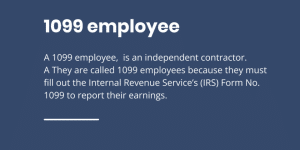Updated April 1, 2025
Coworker Harassment: Who is Responsible?
Coworker harassment is a serious issue that can create a toxic work environment, affecting not only the victim’s mental health but also their overall job performance. In California, laws are in place to protect employees from harassment, regardless of whether the harasser is a supervisor or a co-worker. This article will explore the nuances of coworker harassment, the legal framework surrounding it, and the steps employees can take to address their concerns.
What Constitutes Harassment?
Harassment in the workplace refers to unwelcome behavior that degrades, intimidates, or offends an individual. It is important to understand that not all unpleasant behavior qualifies as harassment under California law. For conduct to be considered harassment, it must meet specific criteria:
- Unwanted Behavior: The actions must be unsolicited and unwanted by the victim.
- Hostile Environment: The behavior must create a work environment that is hostile or intimidating.
- Protected Categories: Harassment can be based on protected characteristics such as race, gender, sexual orientation, disability, and more.
Types of Harassment
Harassment can manifest in various forms, including:
- Verbal Harassment: This includes derogatory remarks, offensive jokes, or insults directed at an individual or group.
- Physical Harassment: This can involve unwanted touching, physical intimidation, or aggressive behavior.
- Visual Harassment: Displaying offensive images, posters, or sending inappropriate emails can also constitute harassment.
Understanding the different forms of harassment is crucial for employees to recognize when they are being targeted.
Legal Framework: California Law
California law provides a robust framework for addressing workplace harassment through the Fair Employment and Housing Act (FEHA). Under this law, employees are entitled to work in an environment free from harassment, regardless of the source of the harassment.
Employer Liability
Employers in California can be held liable for harassment committed by their employees, including co-workers, if they fail to take appropriate action upon learning of the harassment. The following points outline the employer’s responsibilities:
- Prompt Investigation: Employers must promptly investigate any claims of harassment and take necessary corrective actions.
- Prevention Measures: Employers are required to implement policies and training programs to prevent harassment in the workplace.
- Reporting Mechanisms: Employees should have access to clear reporting procedures for harassment claims.
Individual Liability
In addition to employer liability, individuals who engage in harassing behavior can also face personal legal consequences. Victims may pursue claims against the harasser for damages resulting from the harassment.
Recognizing a Hostile Work Environment
A hostile work environment occurs when harassment is so severe or pervasive that it creates a work atmosphere that is intimidating, hostile, or abusive. Factors that contribute to a hostile work environment include:
- Frequency of Harassment: Isolated incidents may not qualify, but repeated behavior can contribute to a hostile atmosphere.
- Severity of Conduct: Actions that are physically threatening or humiliating can significantly impact the work environment.
- Impact on Work Performance: If the harassment affects the victim’s ability to perform their job, it may be considered hostile.
Examples of Hostile Work Environment
- Consistent Bullying: Regularly belittling a colleague in front of others.
- Inappropriate Comments: Making sexual innuendos or derogatory remarks about an employee’s appearance.
- Social Media Harassment: Using social media platforms to harass or intimidate a colleague outside of work hours.
Recognizing these signs is essential for employees to understand if they are experiencing harassment.
Steps to Take if You Experience Harassment
If you find yourself a victim of coworker harassment, it is crucial to take the necessary steps to address the situation:
Document Everything
- Keep Records: Document every incident of harassment, including dates, times, locations, and witnesses. This information will be vital if you decide to take legal action.
- Save Evidence: Retain any emails, messages, or other forms of communication that demonstrate the harassment.
Report the Harassment
- Notify Your Supervisor: If you feel safe doing so, report the harassment to your immediate supervisor or HR department.
- Follow Company Procedures: Adhere to your company’s policies regarding harassment complaints to ensure your claim is taken seriously.
Seek Legal Advice
- Consult an Employment Lawyer: If your employer does not address your complaint adequately, consider seeking legal representation to explore your options under California law.
What to Expect During the Investigation
When you report harassment, your employer is obligated to conduct a thorough investigation. Here’s what to expect:
- Confidentiality: Employers should handle your complaint confidentially to protect your privacy.
- Interviews: The investigator may interview you, the alleged harasser, and any witnesses to gather information.
- Outcome: After the investigation, you should receive a summary of the findings and any actions taken by the employer.
Possible Outcomes
- Disciplinary Action: If the investigation finds sufficient evidence of harassment, the harasser may face disciplinary action, including warnings, suspension, or termination.
- No Action Taken: If the investigation does not substantiate your claims, it may be challenging to pursue further action without additional evidence.
Understanding Your Rights
As an employee in California, you have specific rights when it comes to workplace harassment:
- Right to a Safe Work Environment: You have the right to work in an environment free from harassment and discrimination.
- Right to Report Harassment: You can report harassment without fear of retaliation from your employer.
- Right to Legal Recourse: If your employer fails to address your claims, you have the right to seek legal action.
Retaliation Protections
California law protects employees from retaliation for reporting harassment. This means your employer cannot take adverse action against you for speaking up about harassment or participating in an investigation.
Conclusion
Coworker harassment is a significant issue that can have severe implications for employees and the workplace environment. California law provides strong protections for employees facing harassment, allowing them to seek justice and create a safer workplace. If you or someone you know is experiencing harassment, it is essential to understand your rights and the steps you can take to address the situation. Remember, you do not have to face this alone; seeking legal assistance can help you navigate this challenging process and ensure your rights are protected.







